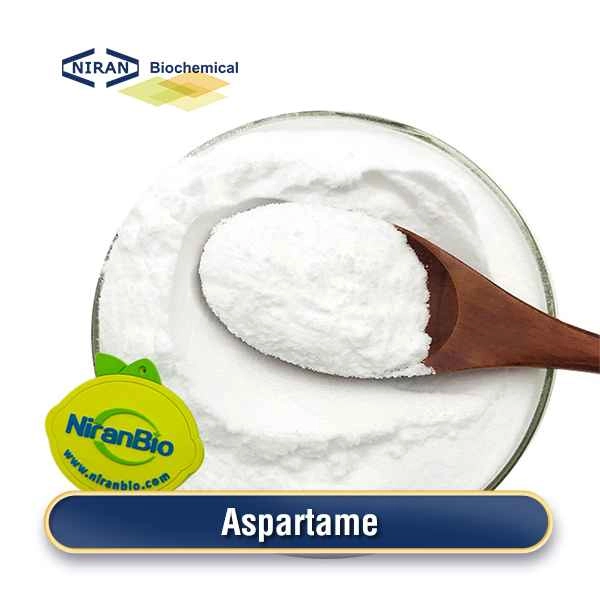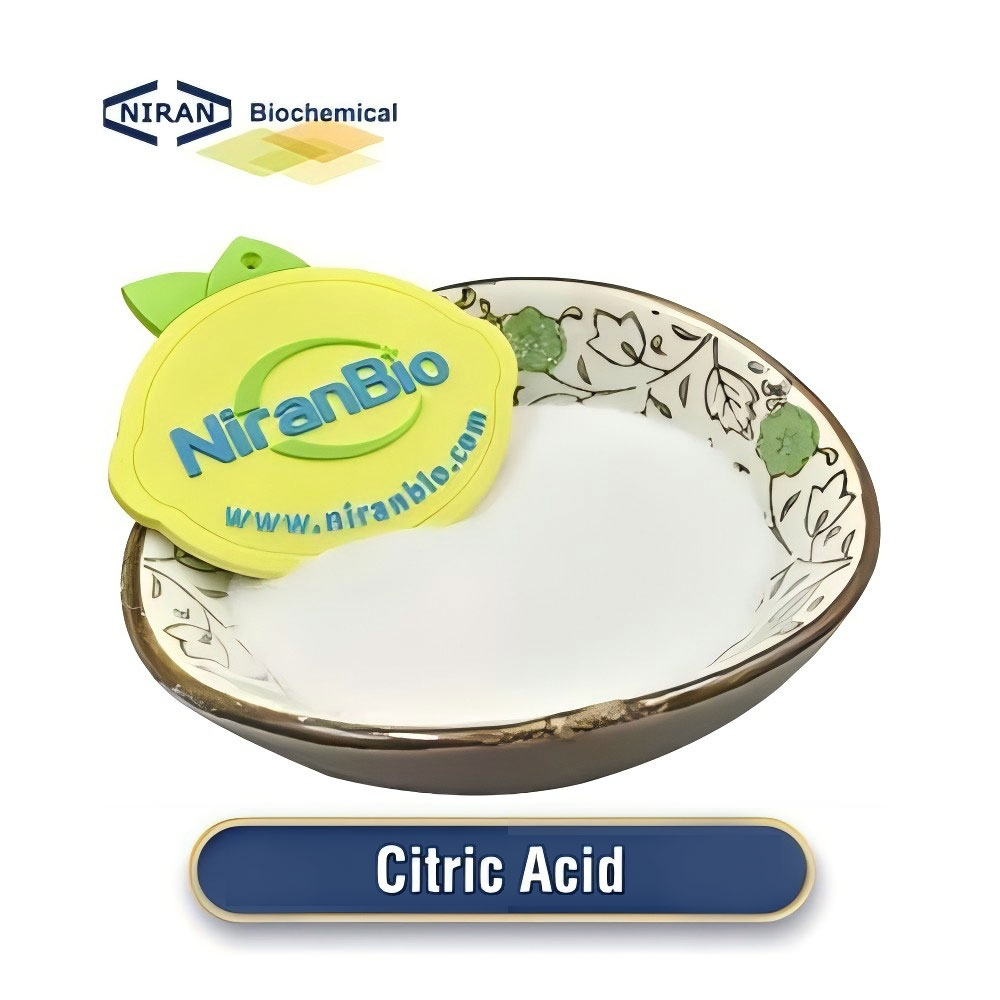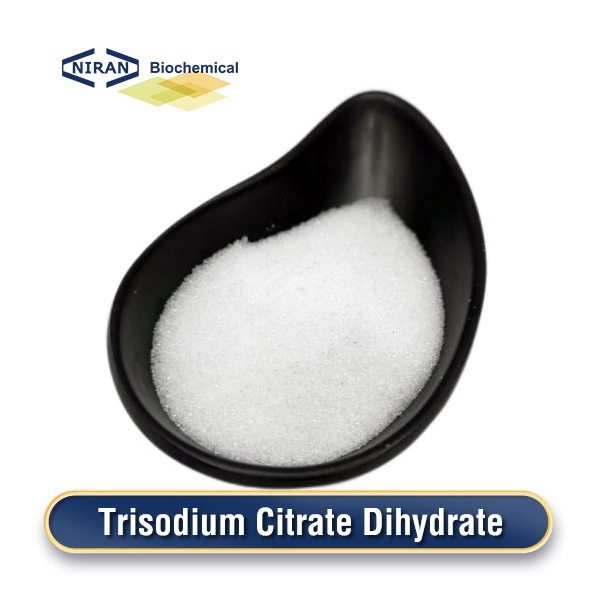Basical Food Additives In Beverages
Here are the common food additives in five Beverages fields:

Aspartame
- Provides sweetness in beverages, typically used at 50 mg to 200 mg per serving, delivering low-calorie sweetness without sugar.

Citric Acid
- Enhances tartness in beverages, commonly used at 0.1% to 0.5%, acting as a preservative and improving flavor stability.

Sodium Citrate
- Regulates acidity in beverages, typically used at 0.1% to 0.3%, buffering pH levels and enhancing overall flavor profile.
In addition to common food additives, juices beverage often utilizes specialized additives to enhance flavor, improve nutritional value, preserve freshness, and create a refreshing and health-oriented product.
- Acts as an antioxidant in juices beverage, preventing oxidation and enhancing vitamin C content; typical dosage is 0.1% to 0.3%.
- Serves as a zero-calorie sweetener in juices beverage, providing sweetness without sugar; typical dosage is 20-50 mg per serving.
- Functions as a thickening agent in juices beverage, improving texture and stability; typical dosage is 0.5% to 1%.
- Provides sweetness in juices beverage, delivering quick energy and enhancing flavor; typical dosage is 5% to 10%.
- Adds sweetness to juices beverage, improving taste and mouthfeel; typical dosage is 5% to 10%.
- Enhances tartness in juices beverage, balancing flavors and improving overall taste; typical dosage is 0.1% to 0.5%.
- Offers zero-calorie sweetness in juices beverage, providing a clean taste without aftertaste; typical dosage is 5% to 10%.
Fructose Crystal
- Naturally sweetens juices beverage, enhancing flavor with a lower glycemic index; typical dosage is 5% to 10%.
- Improves texture in juices beverage, providing mild sweetness and stability; typical dosage is 1% to 5%.
- Regulates acidity in juices beverage, helping to balance flavors; typical dosage is 0.1% to 0.3%.
- Thickens juices beverage, enhancing viscosity and preventing separation of ingredients; typical dosage is 0.2% to 1%.
- Sweetens juices beverage without calories, offering a sugar-like taste; typical dosage is 30 mg to 50 mg per serving.
- Preserves color in juices beverage, enhancing visual appeal and preventing oxidation; typical dosage is 0.05% to 0.1%.
- Stabilizes juices beverage, preventing sedimentation and improving texture; typical dosage is 0.1% to 0.3%.
- Provides intense sweetness in juices beverage without calories; typical dosage is 20 mg to 40 mg per serving.
- Natural zero-calorie sweetener in juices beverage, enhancing sweetness without sugar; typical dosage is 50-100 mg per serving.
- Artificial sweetener in juices beverage that delivers sweetness without calories; typical dosage is 15 mg to 30 mg per serving.
In addition to common food additives, sports drinks frequently include specialized additives to enhance hydration, replenish electrolytes, improve taste, and ensure optimal performance and recovery for athletes.
- Acts as an antioxidant in sport drinks, preventing oxidation and boosting vitamin C levels; typical dosage is 0.1% to 0.3%.
- Serves as a zero-calorie sweetener in sport drinks, providing sweetness without sugar; typical dosage is 20-50 mg per serving.
BCAA
- Supports muscle recovery and reduces fatigue in sport drinks, enhancing performance; typical dosage is 5 g to 10 g per serving.
- Acts as a preservative in sport drinks, inhibiting microbial growth and extending shelf life; typical dosage is 0.1% to 0.3%.
Dextrose Anhydrous
- Provides quick energy and sweetness in sport drinks, improving taste; typical dosage is 5% to 10%.
- Adds sweetness and energy to sport drinks, enhancing flavor and absorption; typical dosage is 5% to 10%.
Folic Acid
- Supports energy metabolism and cellular function in sport drinks; typical dosage is 0.4 mg to 1 mg per serving.
Fructose Crystal
- Naturally sweetens sport drinks, providing quick energy with a low glycemic index; typical dosage is 5% to 10%.
Inositol
- Aids in energy metabolism and improves mental focus in sport drinks; typical dosage is 500 mg to 1 g per serving.
- Preserves sport drinks by inhibiting microbial growth, enhancing shelf life; typical dosage is 0.1% to 0.3%.
- Provides sweetness in sport drinks without calories, offering a sugar-like taste; typical dosage is 30 mg to 50 mg per serving.
- Sweetens sport drinks with no calories, enhancing flavor profile; typical dosage is 30 mg to 50 mg per serving.
- A natural zero-calorie sweetener in sport drinks, providing sweetness without impacting blood sugar; typical dosage is 50 mg to 200 mg per serving.
- Sweetens sport drinks with zero calories, offering a sugar-like taste; typical dosage is 25 mg to 100 mg per serving.
Taurine
- Supports hydration and may enhance exercise performance in sport drinks; typical dosage is 1 g to 3 g per serving.
Vitamin A Acetate Powder
- Contributes to vision and immune function in sport drinks; typical dosage is 0.5 mg to 1 mg per serving.
Vitamin B2
- Supports energy production and metabolism in sport drinks; typical dosage is 0.5 mg to 1.5 mg per serving.
Vitamin E 50% Powder
- Acts as an antioxidant in sport drinks, protecting cells from oxidative damage; typical dosage is 5 mg to 15 mg per serving.
In addition to common food additives, yogurt drinks often use specialized additives to enhance flavor, improve texture, boost probiotic levels, and create a creamy, nutritious beverage ideal for various dietary preferences.
- Serves as a zero-calorie sweetener in yogurt drink, providing sweetness without sugar; typical dosage is 20-50 mg per serving.
- Functions as a thickening and stabilizing agent in yogurt drink, improving texture and creaminess; typical dosage is 0.5% to 1%.
- Acts as a gelling agent in yogurt drink, enhancing consistency and mouthfeel; typical dosage is 0.5% to 1.5%.
- Functions as an antioxidant in yogurt drink, preserving freshness and promoting health; typical dosage is 5-15 mg per serving.
In addition to common food additives, carbonated drinks frequently incorporate specialized additives to enhance flavor, maintain carbonation, improve stability, and ensure a refreshing experience throughout their shelf life.
- Adds sweetness and improves flavor in carbonated drinks; typical dosage is 5% to 10% per serving for enhanced taste.
Dextrose Anhydrous
- Provides quick energy and sweetness in carbonated drinks; typical dosage ranges from 5% to 10% for optimal flavor enhancement.
Fructose Crystal
- Naturally sweetens carbonated drinks while having a lower glycemic index; typical dosage is 5% to 10% for balanced sweetness.
- Sweetens carbonated drinks without calories, delivering a sugar-like taste; typical dosage is 30 mg to 50 mg per serving.
- Acts as a natural zero-calorie sweetener in carbonated drinks, enhancing flavor without raising blood sugar; typical dosage is 50 mg to 200 mg.
- Sweetens carbonated drinks with zero calories, closely mimicking sugar's taste; typical dosage ranges from 25 mg to 100 mg per serving.
In addition to common food additives, milkshakes often use specialized additives to enhance texture, improve stability, boost flavor, and ensure a creamy, consistent experience throughout their shelf life.
- Serves as a zero-calorie sweetener in milkshakes, providing sweetness without sugar; typical dosage is 20 mg to 50 mg per serving.
- Acts as a calcium source in milkshakes, enhancing nutritional value; typical dosage is 0.5% to 1% for effective fortification.
Dextrose Anhydrous
- Adds quick sweetness and energy to milkshakes, improving overall flavor; typical dosage ranges from 5% to 10% per serving.
- Enhances sweetness and flavor in milkshakes, contributing to a pleasant mouthfeel; typical dosage is 5% to 10% for optimal taste.
- Functions as a gelling agent in milkshakes, improving texture and stability; typical dosage is 0.1% to 0.5% for desired consistency.
- Thickens and stabilizes milkshakes, enhancing creaminess; typical dosage is 0.5% to 1% for effective texture improvement.
- Adds protein to milkshakes, improving nutritional content; typical dosage is 5% to 15% for effective supplementation.
- Provides mild sweetness and improves texture in milkshakes; typical dosage is 1% to 5% for better mouthfeel.
- Adds creaminess and enhances flavor in milkshakes; typical dosage is 5% to 15% for desired richness.
- Sweetens milkshakes without calories, offering a sugar-like taste; typical dosage is 30 mg to 50 mg per serving.
- Provides sweetness in milkshakes without adding calories; typical dosage is 30 mg to 50 mg for optimal flavor.
- Acts as a natural zero-calorie sweetener in milkshakes, enhancing flavor; typical dosage is 50 mg to 200 mg for effective sweetness.
- Sweetens milkshakes with zero calories, closely resembling sugar in taste; typical dosage ranges from 25 mg to 100 mg.
Vitamin E 50% Powder
- Acts as an antioxidant in milkshakes, preserving freshness; typical dosage is 5 mg to 15 mg for effective stability.
- Thickens and stabilizes milkshakes, improving texture; typical dosage is 0.1% to 0.5% for optimal consistency.
